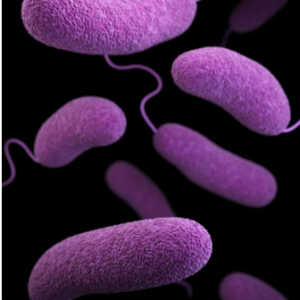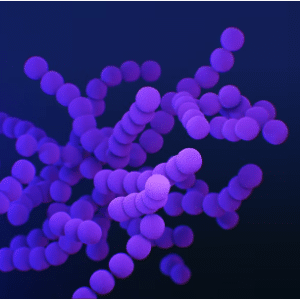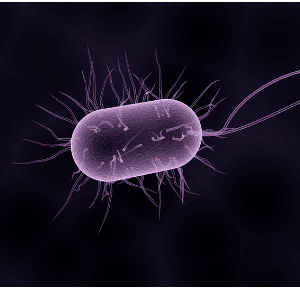Auxotrophy
- Auxotrophy and prototrophy are microorganisms distinguished based on their ability to synthesize essential growth factors. Auxotrophy are microorganisms that lose their ability to metabolize nutrients from a medium that is crucial for their growth. In contrast, prototrophy are microorganisms that can still synthesize nutrients required for their development.
close-up of mobile bacteria Auxotrophy
- The word ‘auxo’ is from Greek, means ‘increase,’ and ‘trophe’ means nutrition, meaning ‘increased nutrition. Whereas ‘proto’ means ‘parent’ or ‘source,’ hence ‘source nutrition.’ Based on their growth medium, the auxotrophy and prototrophy mutate to either form for them to survive under their surrounding conditions, thus forming auxotrophy mutants.
- Therefore, the examples of prototropic microorganisms are few compared to auxotrophy as they are abundant in nature. One of the few examples of auxotrophy includes Saccharomyces cerevisiae, a yeast species used in the fermentation of alcoholic and non-alcoholic beverages.
- Meanwhile, certain Saccharomyces cerevisiae strains are prototrophic under the right environmental conditions. Studying these microorganisms can pave a path to understanding their biosynthetic pathways.
Auxotrophy
- Auxotrophy are mutant microorganisms that require specific supplements in the growth medium to increase. These microorganisms are incapable of producing essential compounds for their development, such as amino acids, vitamins, proteins, etc. This loss of ability is due to mutations causing them to lose their ability to synthesize biochemical compounds.
- Hence, specific supplements are added in the medium of growth to provide sufficient nutrients required for them to metabolise and proliferate.
Close-up of purple coloured microorganism Prototrophy
- Nature is abundant with auxotrophy microorganisms since the energy generated to metabolise nutrients are obtained from the surrounding conditions or a host. With large compounds obtained from the environment, they do not lack any requirement of metabolites.
- Therefore, the biosynthesizing genes are altered, causing them to lose their self-metabolising ability becoming auxotrophic mutants. Based on this observation, it is possible to determine which process of biosynthetic pathways are strayed.
Prototrophy
- Prototrophy microorganisms can synthesize all biochemical compounds that are vital for their growth. Since they do not undergo any mutations, their ability to synthesize substances is not hindered, making them capable of metabolising all compounds. These prototrophy are capable of producing compounds from inorganic materials.
- Hence they do not require any organic compounds in the medium to grow. However, for these microorganisms to develop, they need simple compounds such as water, carbon dioxide, and sugar as energy sources.
- Research has experimented with transforming auxotrophic microorganisms into prototrophs. However, the results have been unsuccessful. Under controlled conditions, each auxotroph lacks specific nutrients, and therefore, understanding the proper nutrients required for that auxotroph is essential for possible transformation.
- However, researchers have shown that prototrophy are the ancestors of auxotrophs, mutated due to environmental conditions and depending on the availability of nutrients.
Close-up of pink coloured mobile bacteria Prototrophy
Auxotrophs vs. Prototrophs
- The significant difference between auxotrophs and prototrophs is that the former are mutant microorganisms incapable of synthesizing one or more compounds necessary for their growth. Whereas the latter is generic microorganisms can produce any compounds required for their development.
- Auxrotrophs require supplementary nutrients to support their development. Therefore, they require a medium containing all the sufficient compounds to support their development. In comparison, the prototrophy do not need any additional nutrients to survive. Hence they can be grown in a medium lacking supplementary growth nutrients.
- Auxrotrophs are susceptible to mutations; hence, many auxotrophic mutants exist, while prototrophy do not undergo mutations; therefore, they are the parent microorganisms.
- One of the significant importance in understanding the life of these auxotrophic microorganisms is that their metabolic pathways are studied to determine their survivability and development. In contrast, prototrophic microorganisms are significant in extracting vital biochemical compounds required for various purposes.
- However, in the midst of the differences between auxotrophy and prototrophs, they are utilised as the gene marker for genetic analysis. Additionally, these microorganisms are studied to determine tier sensitivity and resistance to specific inhibitors.
internal links:
Broccoli Health benefits facts recipe & more- Erakina
Do you want to know health benefits recipe of Sambaram: spiced buttermilk
21/04/2022
Tags:
microorganismsOther Articles
Next
Previous





